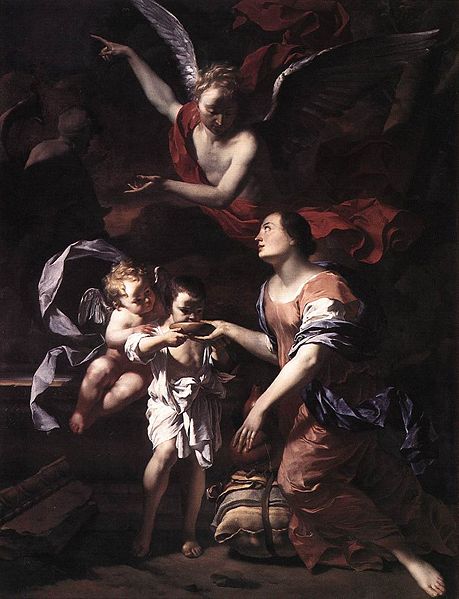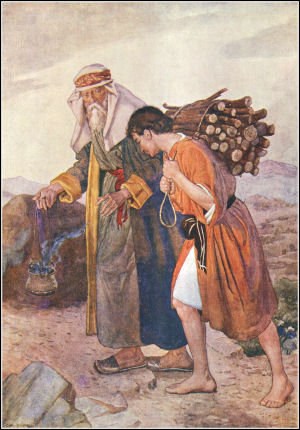After the death of Terah, God called Abram again (Genesis 12). He told him to leave that country (Mesopotamia and its pagan ways) and head towards a country that God would yet show him (Canaan). God promised to make of Abram a great nation with a land of their own. He also declared a blessing over him and swore to bless those who blessed him, but to curse those who cursed him. God did not just throw these things randomly at an unsuspecting Abram.
Though I speculated earlier that he may have sacrificed a child as part of his pagan past, I submit that Abram was a deep thinker, who intensely searched after God and ultimately walked with the creator, but the favour of God came at a great personal price to Abram. The contrasts on his path helped to divide between his godless past and God-centred future. He was forced to contemplate the directionlessness of the Chaldean moon-god against the backlight of a vast canopy of stars that reflected the certainty of God's divine purposes. God also contrasted the dark heart of paganism (the futility of human sacrifice to non-gods) in the light of His own heart (a covenant borne out of God's sacrificial gift to us). Each step towards his own destiny stripped Abram of the misconceptions and follies of his past. Gradually God had invested his own heart in that one solitary giant to establish an oracle (Romans 2) of truth and a beacon of reason in a dark, godless world.
Though I speculated earlier that he may have sacrificed a child as part of his pagan past, I submit that Abram was a deep thinker, who intensely searched after God and ultimately walked with the creator, but the favour of God came at a great personal price to Abram. The contrasts on his path helped to divide between his godless past and God-centred future. He was forced to contemplate the directionlessness of the Chaldean moon-god against the backlight of a vast canopy of stars that reflected the certainty of God's divine purposes. God also contrasted the dark heart of paganism (the futility of human sacrifice to non-gods) in the light of His own heart (a covenant borne out of God's sacrificial gift to us). Each step towards his own destiny stripped Abram of the misconceptions and follies of his past. Gradually God had invested his own heart in that one solitary giant to establish an oracle (Romans 2) of truth and a beacon of reason in a dark, godless world.
The life and times of Abraham (c) P Eleazar, http://www.bethelstone.com/


















